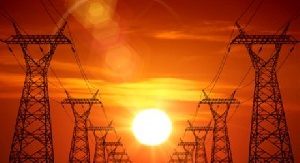The Ghana Employers Association (GEA) has backed realistic tariffs for utility providers, provided they can reduce their technical and administrative inefficiencies.
The GEA said it recognises that utilities need realistic tariffs to recover their costs and expand capacity to meet current and future demand.
President of the Association Terence Darko, who was speaking in Accra at their 53rd annual general meeting, said: “GEA believes in cost-recovery, provided our service providers reduce significantly their cost of doing business; and reduce waste, production transmission losses as well as administrative expenses.
“Critical to energy self-sufficiency for Ghana is the issue of tariffs. The perennial politicisation of tariff adjustment can only be to the disadvantage of consumers.”
He said although electricity supply has improved, the Volta River Authority (VRA), the Electricity Company of Ghana (ECG) and the Ghana Grid Company (GRIDCo) must retool and continue their expansion programmes to avert any future power challenges.
“[Electricity supply] has modestly improved and it is our expectation that government’s medium- and long-term energy plans will be implemented to the fullest.”
Proposals for an increase in power and water tariffs were submitted by the state-owned utility companies to the Public Utilities Regulatory Commission (PURC) in the first quarter of the year, but the regulator has yet to make a decision on the requests.
The Electricity Company of Ghana (ECG), in its proposal, said while it is required to pay 26.5 pesewas per kilowatt hour to purchase power from the seven Independent Power Producers (IPPs) this year, the current bulk generation tariff provides for only 10.53 pesewas per kilowatt hour.
The company is therefore asking for a 166 percent increase in its current tariff, which would help it bridge a US$170million annual funding gap. The VRA, which sells power to the ECG, is also seeking an increase in tariff of 137.5 percent; Ghana Grid Company is demanding a 39.36 percent jump in its tariff; and the Ghana Water Company is asking for 99.39 percent.
Speaking with the B&FT last month about the impact of the delay in adjusting utility tariffs on the country’s finances, Finance Minister Seth Terkper said: “We know that there’s a process, and the PURC is going through the process. [But] the delay is causing a problem because since the prices have not been adjusted, every month we have to pay the differential. It only means that the rebalancing of the budget is taking longer.”
Government’s net debt to the VRA was about GH¢20million in the last quarter of 2012 and GH¢57million in the first quarter of 2013.
Ghana’s electricity demand stands at about 1,800 megawatts per day, and is rising at around 10 percent per annum. The VRA, which has a total installed capacity of 2,100 megawatts, currently generates about 1,600 megawatts of electricity every day.
This is augmented by 400 megawatts of combined generation from Bui, CENIT, and Sunon Asogli power plants.
The Ghana Grid Company Limited (GRIDCo) estimates that the country needs 340 megawatts of reserve power capacity for contingencies, while the VRA says the country requires US$200million of investment to bring on-stream 200 megawatts of new capacity each year.
Business News of Monday, 9 September 2013
Source: B&FT













